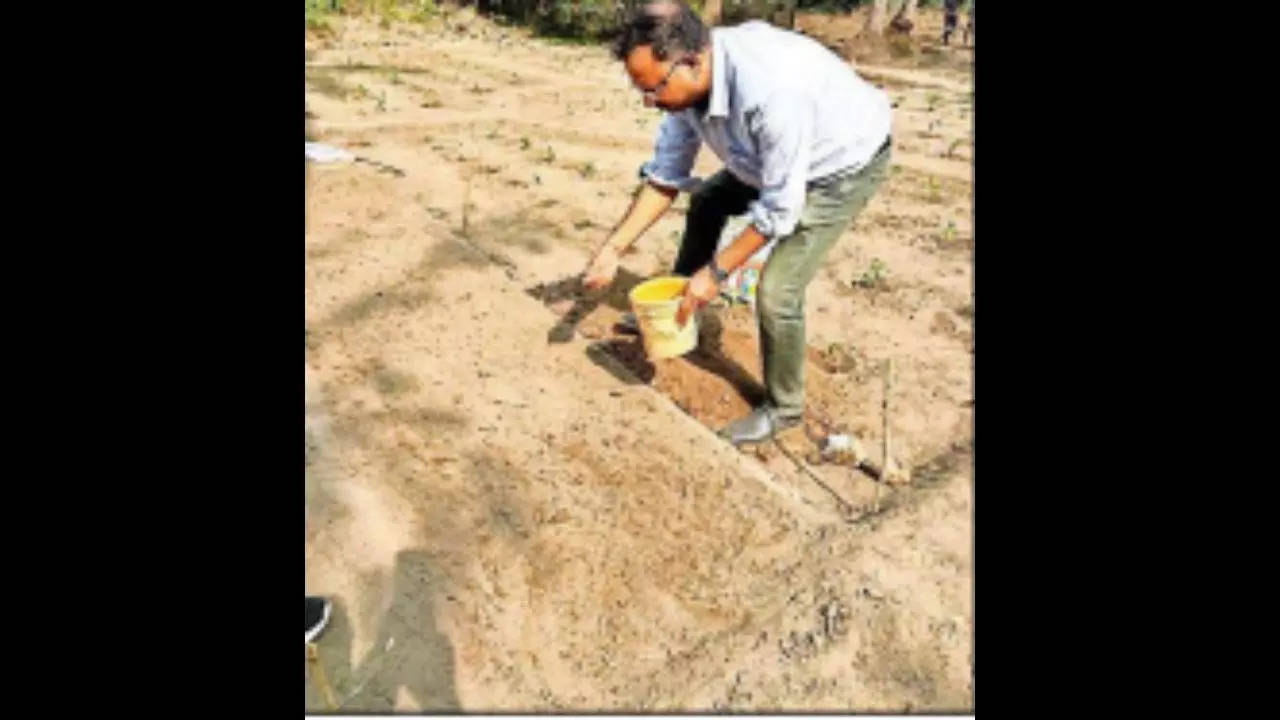LUCKNOW: The flowers offered at much revered Puri’s Jagannath temple will soon be grown with help from Lucknow-based CSIRNational Botanical Research Institute.
As per a memorandum of understanding (MoU) signed between the two parties, Lucknow-based research institute will help the Odisha temple in growing special flowers such as lotus, Gandhraj and other aromatic plants needed for rituals.
The flowers will be grown in around 13 acres of temple land. It will not be the first such holy assignment for tyhe NBRI, which had recently developed ‘Namoh’, a lotus with 108 petals.
“We have been developing flower clusters near temples like Goraknath in UP, Shirdi temple in Maharashtra, Kashi Vishwanath in Varanasi and Meenakshi temple in Madurai, Tamil Nadu,” NBRI director Ajit Kumar Shasany. “Since devotees are not allowed to offer flowers bought from outside to deities, the offering for the rituals are grown on the land owned by the temple.
At present, the supply of flowers and plants used at the temple is insufficient to meet such a large need hence NBRI will teach them techniques on how to cultivate aromatic plants and get full bloom in flowering plants,” said Shasany under whose guidance the institute had recently launched Jasmine cultivation at Puri temple land.
He said that the institute will also teach Puri temple staff the techniques for growing specific plants like Marjoram, Davana and others used for rituals.
The temple has given already allotted NBRI a piece of 13 acres of land for the purpose. “The temple authorities had planted flowers and plants on this land but failed to give the desired result. Now, the task will be achieved with NBRI providing hand holding support to the temple staff,” said the director.
He said that while land and labour will be of the temple, the NBRI will provide good quality genotype plants of Gandhraj, Jasmine and Marigold to them. “We are also developing flower clusters in nearby villages from where temple authorities can also meet their present and future need.
We plan to train gardeners of the temple to make them independent in flower cultivation,” he added. “Since lotus is also offered as part of the prayer, we will also help them grow ‘Namoh lotus’ at the temple site,” he added.
As per a memorandum of understanding (MoU) signed between the two parties, Lucknow-based research institute will help the Odisha temple in growing special flowers such as lotus, Gandhraj and other aromatic plants needed for rituals.
The flowers will be grown in around 13 acres of temple land. It will not be the first such holy assignment for tyhe NBRI, which had recently developed ‘Namoh’, a lotus with 108 petals.
“We have been developing flower clusters near temples like Goraknath in UP, Shirdi temple in Maharashtra, Kashi Vishwanath in Varanasi and Meenakshi temple in Madurai, Tamil Nadu,” NBRI director Ajit Kumar Shasany. “Since devotees are not allowed to offer flowers bought from outside to deities, the offering for the rituals are grown on the land owned by the temple.
At present, the supply of flowers and plants used at the temple is insufficient to meet such a large need hence NBRI will teach them techniques on how to cultivate aromatic plants and get full bloom in flowering plants,” said Shasany under whose guidance the institute had recently launched Jasmine cultivation at Puri temple land.
He said that the institute will also teach Puri temple staff the techniques for growing specific plants like Marjoram, Davana and others used for rituals.
The temple has given already allotted NBRI a piece of 13 acres of land for the purpose. “The temple authorities had planted flowers and plants on this land but failed to give the desired result. Now, the task will be achieved with NBRI providing hand holding support to the temple staff,” said the director.
He said that while land and labour will be of the temple, the NBRI will provide good quality genotype plants of Gandhraj, Jasmine and Marigold to them. “We are also developing flower clusters in nearby villages from where temple authorities can also meet their present and future need.
We plan to train gardeners of the temple to make them independent in flower cultivation,” he added. “Since lotus is also offered as part of the prayer, we will also help them grow ‘Namoh lotus’ at the temple site,” he added.
